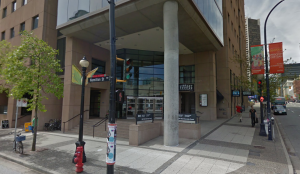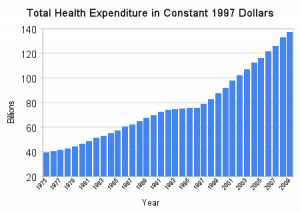
The Immigration and Refugee Board office in Vancouver. New rules in place since December 15th expedite the processing of asylum claims from Designated Countries of Origin (DCOs) and withdraw their access to the Refugee Appeals Division (RAD) (GOOGLE MAPS)
Citizenship and Immigration Canada (CIC) last week released a list of 27 countries whose nationals will have their asylum claims expedited.
The new rules were created to fight a growing problem of bogus asylum claims by nationals of European member-state countries, particularly Hungary.
The Canada Border Services Agency (CBSA) has reported thousands of Hungarian Roma arriving in Canada in recent years and in most cases going on welfare for months/years until their refugee hearing.
In almost all cases, the bogus claimants withdrew their refugee claim before the hearing or had it heard and rejected by the Immigration and Refugee Board (IRB) due to lack of evidence of persecution in their country of origin.
Starting December 15th, the following countries have been classified as designated countries of origin (DCOs) and subject to the new expedited processing rules for asylum claimants they produce:
- Austria
- Belgium
- Croatia
- Cyprus
- Czech Republic
- Denmark
- Estonia
- Finland
- France
- Germany
- Greece
- Hungary
- Ireland
- Italy
- Latvia
- Lithuania
- Luxembourg
- Malta
- Netherlands
- Poland
- Portugal
- Slovak Republic
- Slovenia
- Spain
- Sweden
- United Kingdom
- United States of America
The list includes 25 of 27 European member states, as well as the United States and Croatia.
CIC says more countries will be added over the next few months, which could see Romania, another major source of bogus claimants, put on the list.
The new asylum processing procedures will also see claimants from non-DCO countries have their case heard within 60 days, which is significantly faster than the average 600 days that asylum claimants currently wait.
While claimants from DCO countries will be able to appeal negative IRB decisions at federal court, they will not have access to the newly created Refugee Appeal Division of the IRB, and will not have their removal orders stayed while making an appeal to federal courts, thus closing one of the main means by which bogus claimants extend their stay in Canada.
The criteria used to determine which countries will be designated as ‘safe’ and have the processing of asylum claimants originating from them expedited is at least 60 percent of claimants from the country withdrawing/abandoning their claim, or at least 75 percent of claims by claimants from the country being either withdrawn or abandoned by the claimant, or rejected by the IRB.
For countries from which less than 30 claimants originate each year, a different criterion of existence of an independent judiciary, democratic rights, and the existence of civil society organizations will be used.


